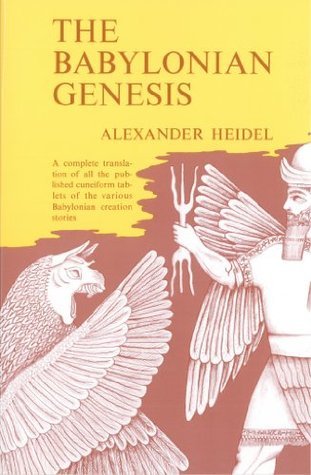What do you think?
Rate this book


178 pages, Kindle Edition
First published January 1, 1942
The other Greek account if that of Berossus, a priest of Bel Marduk at Babylon. It is taken from his history of Babylonia, which he compiled from native documents and published in Greek about 275 B.C. His writings have perished, but extracts from his history have fortunately been preserved to us. The preservation of the Babylonian creation story we owe to a monk in Constantinople commonly known as Syncellus, or Sunkellos (eighth century A.D.), who derived his material from the lost 'Chronicle' of the church historian Eusebius of Caesarea (ca A.D. 260—ca. 340); and Eusebius, in turn, derived it from the works of Alexander Polyhistor (last century B.C.)And yet, this account has turned out to be remarkably accurate.